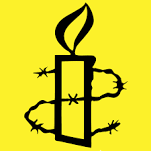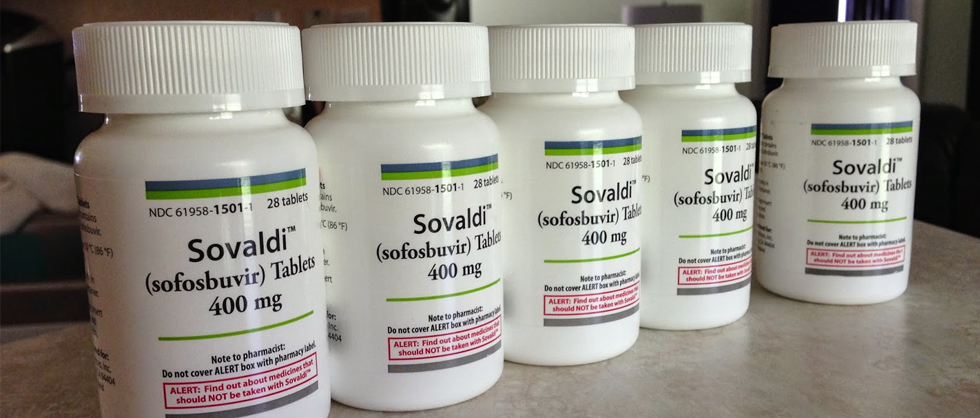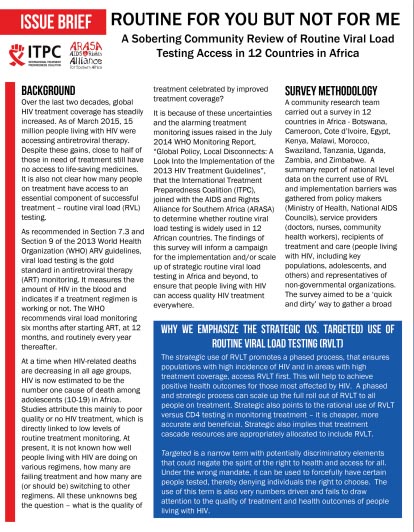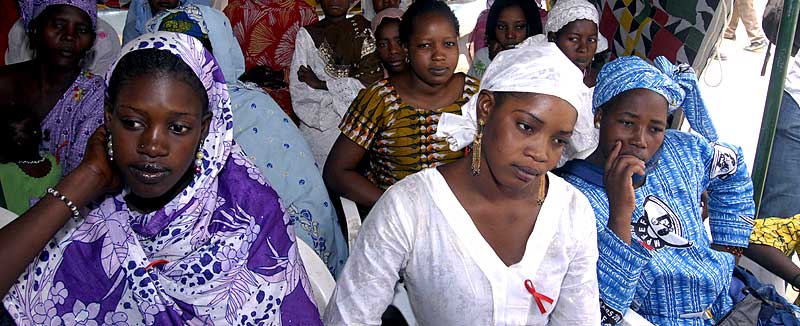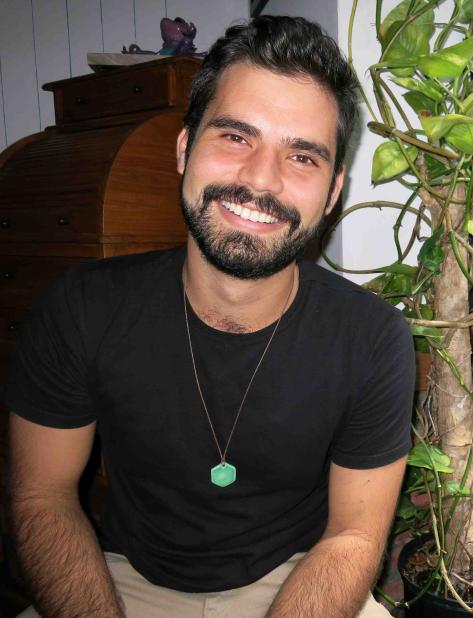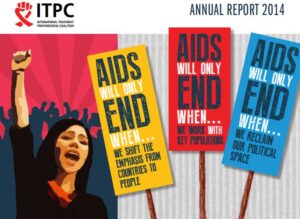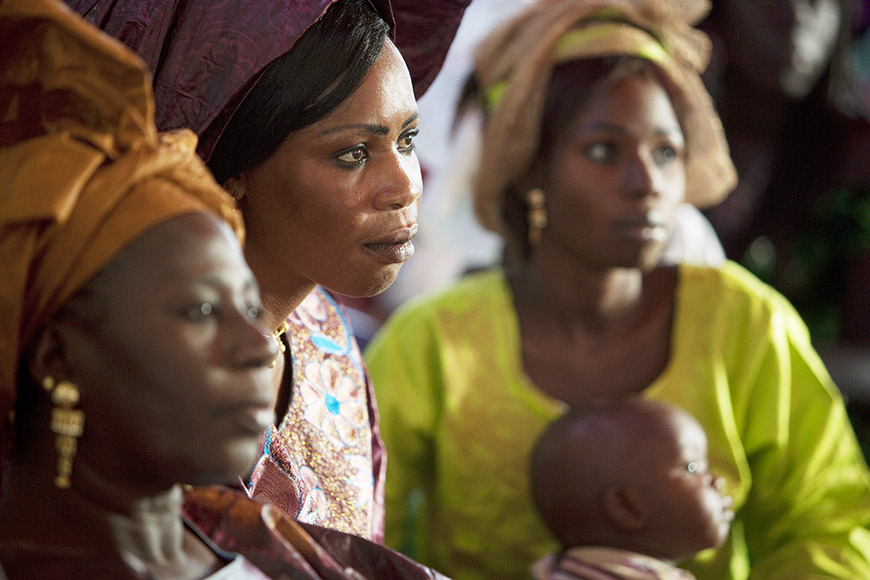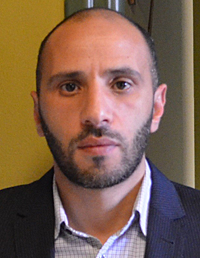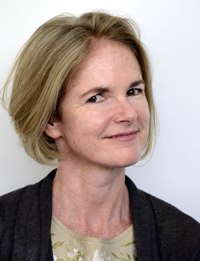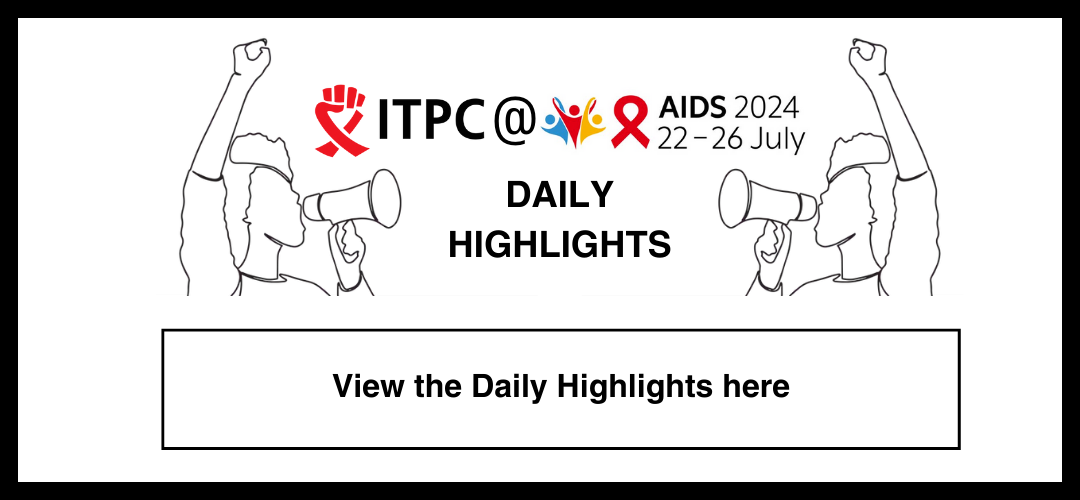Christine Stegling, Executive Director of International Treatment Preparedness Coalition, explains the importance of strengthening global health systems for all so that no one is left behind. In her interview for the Open Society Foundation – New Executives Fund, Christine explains it is time re-politicize the AIDS debate.
Christine was one of the first beneficiaries of Open Society Foundation’s – New Executives Fund. In this short video Christine reflects on the space and support it has given her to make ITPC a more strategic and cohesive global coalition, and also to establish the network’s offices in the South.
“Community activism has played a crucial role in achieving better access to HIV treatment. Although there is comparatively better access to treatment now than in the past, communities must remain at the center of the global HIV response. The International Treatment Preparedness Coalition (ITPC) was established in 2003 as a loose but fierce coalition of AIDS activists from across the world, united in a common belief in the right to health for all. Over the years, this movement has grown into a global network of treatment activists, with regional structures in Africa, Asia, Latin America, the Caribbean, and Eastern Europe.”
Read the original on Open Society Foundation’s website and see the interview here.
-
Strengthening health systems for all
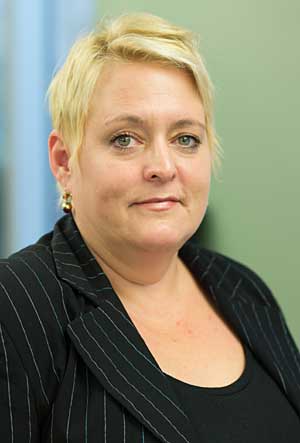
-
ARV Procurement in Russia in 2014

International Treatment Preparedness Coalition – Eastern Europe publishes its report ARV Procurement in 2014: History of Decentralization in English.
The number of people living with HIV and on treatment in Russia, is less than a third of the total number of people who need treatment. The price of anti-retroviral therapy remains a significant barrier to treatment in the country.
The conclusions and recommendations of the report are included below in full. For the full report download the pdf.Conclusions and Recommendations
One of the main problems in provision of HIV-positive patients with drugs in Russia is that the number of people who need treatment considerably exceeds the number of patients who receive the therapy. This is confirmed by the relevant statements of officials, publications in mass media, numerous statements of patients, as well as indirectly by the results of this report.
Recommendations for Government of the Russian Federation
Based on the results of analysis of ARV procurement, this problem may be solved by sharp decrease in prices for drug in order to increase the therapy coverage. For this purpose, the Government of the Russian Federation and other competent authorities are suggested to take the following measures:
- Develop and adopt a normative document regulating the incremental reduction in prices of drugs, including those for HIV treatment. The document should specify the obligation of generic manufacturers to register prices at the level not less than 30% below the price of the original drug. In addition, each subsequent generic drug must be also registered at a price below the prices of analogues existing in the market.
- Consider the possibility of full or partial centralization of ARV procurement to increase the volume of purchases, which will allow reducing the price in the long run. In addition, it is recommended to analyze the feasibility of direct procurement of drugs from LEM without distributors to minimize their influence on the price change.
- Consider the possibility of issue of compulsory licenses on clinically important ARV drugs that have no analogues in the Russian market and/or that have a significant share in the federal budget for antiretroviral therapy. According to the authors of the report, first of all, attention should be paid to the following drugs: lopinavir/ritonavir, raltegravir, atazanavir and tenofovir/emtricitabine.
- Use other possibilities provided for by the flexible provisions of the TRIPS Agreement, in particular, parallel imports, to reduce prices of drugs for treatment of socially significant diseases.
Recommendations for the Ministry of Health
Based on the results of analysis, it is evident that patients in Russia receive non-optimum HIV treatment regimens according to the recommendations of WHO. In this regard, the Ministry of Health and other competent authorities are recommended to:
- Ensure regular (at least once per annum) review of the list of essential medicines in order to consider the possibility of inclusion of newly registered ARV drugs, as well as exclusion of drugs not recommended for the use in HIV treatment;
- Revise legal acts regulating the process of registration of drugs in the Russian Federation in order to facilitate the entry to market of new drugs, including generics.
Based on the results of analysis, it may be concluded that ARV procurement is still not functioning well in the Russian Federation. There is a significant difference in prices for the 45 same drugs in different constituent entities of the Russian Federation, different systems are used for justification of the initial maximum price, and auctions are delayed due to agreement of the auction documentation with regulatory authorities.
Recommendations for Consumer Rights and Human Welfare Protection
In this regard, the Federal Service for Consumer Rights and Human Welfare Protection (Rospotrebnadzor), the Federal AIDS Centre and other competent authorities are recommended to:
- Maintain a unified register of HIV-positive patients and oblige constituent entities of the Russian Federation maintain similar registries at the regional level containing parameters important for prescription and continuation of treatment, as well as forecasting of the demand for drugs in order to optimize the process of procurement and provision of ARV therapy;
- Provide technical support and training to administrators of AIDS centres and specialists of regional ministries of health in order to improve the planning and procurement under FZ-44 for prevention of interruptions in supply of ARV drugs, with a special emphasis on justification of the initial maximum price and approval of
auctions with a single supplier; - Consult with regulatory authorities for the possibility to conduct more rapidly (on a priority basis) inspections of auctions for ARV procurement with a single supplier in order to avoid interruptions in supply of essential medications;
- Recommend to AIDS centres and regional health committees closer interaction with patient organizations in planning and procurement of ARV drugs;
- Develop an official position and recommendations on procurement of combination forms of ARV drugs in cooperation with the Federal Antimonopoly Service, AIDS centres and regional ministries of health.
AIDS centre and regional ministries of health are recommended to interact with patient organizations in planning and procurement of ARV drugs to prevent interruptions, as well as in connection with increase in the number of generic drugs in the market to hold consultations for patients regarding replacement of one trade name for another for the same international non-proprietary name.
-
Support for Amnesty’s draft policy to decriminalize sex work

In a letter to Amnesty International, Christine Stegling shows ITPC’s support for a draft policy to decriminalize sex work.
Dear Salil Shetty
Re: Support for your draft policy statement on the decriminalization of sex work
I am writing to you in my capacity as the Executive Director of the International Treatment Preparedness Coalition (ITPC), a global coalition of HIV treatment activists from around the globe. We work in all geographic regions of the world through our eight regional networks and a variety of partnerships.
As a global coalition, ITPC was founded on a strong belief in international solidarity among people living with and affected by HIV. We believe that the fight for HIV treatment remains one of the most significant global health rights issues, with the majority of those requiring treatment still lacking adequate access.
While much progress has been made in terms of people living with HIV accessing anti-retroviral treatment and HIV prevention services, serious disparities remain for many groups. Sex workers are one of the groups that are disproportionately affected by HIV. For example, prevalence for sex workers is 12 times higher than in the population as a whole. There is almost no data showing the percentage of sex workers able to access uninterrupted, quality anti-retroviral therapy but there is evidence that many sex workers face enormous discrimination when it comes to accessing health services. Much of this is related to stigma, discrimination and criminalization of sex work which results in poor documentation of human rights abuses of sex workers and limited action to protect them from such abuses. As HIV treatment activists, we strongly support any measures that support the rights of sex workers so they can fully participate in public life, access services and participate in decisions that affect their lives.
We therefore wish to express our support for Amnesty International’s Resolution and draft policy calling for the decriminalization of sex work, to be tabled for adoption at the International Council Meeting, 6-11th of August 2015.
With warm wishes

Christine Stegling
Executive Director
International Treatment Preparedness Coalition (ITPC) -
Don’t forget treatment on World Hepatitis Day

The prohibitive price of hepatitis C virus medications will result in needless deaths if we don’t act now
July 28, 2015 — On World Hepatitis Day 2015, as the World Health Organization (WHO) emphasizes prevention, the International Treatment Preparedness Coalition (ITPC) and Treatment Action Group (TAG) urge pharmaceutical companies and the governments of middle-income countries (MICs) to act now to facilitate access to treatment for all people with hepatitis C virus (HCV), to avoid needless deaths from HCV complications and to prevent new infections.
Globally, more than 150 million people live with chronic HCV, the majority living in MICs, also home to 73% of the world’s poorest people. Each year, HCV kills 700,000 people and 3-4 million are newly infected.
“Over the coming years, there is huge potential to transform the treatment of HCV infection, as new all-oral treatments, called direct-acting antivirals (DAAs), become available. DAAs have a shorter treatment period and more manageable side effects than the previous standard of care,” explains Christine Stegling, Executive Director of ITPC. “HCV infection is curable in nearly all patients and eradication of the disease is feasible, but we must act now.”
The combination of sofosbuvir (produced by Gilead Sciences/”Gilead”) and daclatasvir (produced by Bristol-Myers Squibb/”BMS”) is a robust combination that is well suited for use in resource-limited settings. This treatment combination can be used for all genotypes, in people with advanced liver disease, and is highly effective in HIV co-infected people on antiretroviral therapy.
“The problem is that the inflated price of such medicines, which is directly linked to intellectual property rights, is a major barrier to people getting the treatment they need,” explains Karyn Kaplan, Director of International Hepatitis/HIV Policy & Advocacy at TAG.
Gilead issued a voluntary license (VL) that allows generic manufacturers to produce and sell their drugs in 91 low- and middle-income countries (LMICs), but this still excludes 49 million people in 50 MICs. Bristol-Myers Squibb announced a VL country list identical to Gilead’s, except that it notably excludes Egypt, where more than 10 million people are in need of treatment. However, BMS has not publicly issued any voluntary licences yet.
“Competition from multiple generic manufacturers has already led to reductions in the price of sofosbuvir. This will enable low-cost access to quality-assured generic versions of the drug for many,” explains Othoman Mellouk, Intellectual Property Expert at ITPC. “But Gilead limits the number of countries able to procure such generics, and these versions have not yet been quality-assured by WHO.”
Beyond patent and pricing barriers, there are regulatory and approval challenges to expanding DAA access. For example, having secured monopolies in several high-HCV burden MICs (such as China, Brazil and Ukraine) by excluding them from their VL, Gilead has also delayed or failed to register their drug in most countries. According to Gilead, sofosbuvir has only been granted marketing authorisation in seven MICs. Their sofosbuvir/ledipasvir combination, Harvoni, has been registered in just one country. BMS is even further behind. If an originator company fails to register their drug, it is difficult for generic manufacturers to get regulatory approval for their version of the product.
ITPC and TAG call on MIC governments to ensure access to affordable DAAs. We also urge Gilead and BMS to urgently reduce their prices, particularly in MICs, and expand the geographical scope of their licenses, to help stop HCV-related deaths — and to prevent new infections.
ITPC calls on:- Gilead to extend its “Global Access” program to all MICs where there is HCV, and to remove restrictive “anti-diversion” barriers that infringe on patient privacy
- Bristol-Myers Squibb to implement their global access program, and extend coverage to all countries with HCV epidemics
- Gilead and Bristol-Myers Squibb to speed up registration of sofosbuvir and daclatasvir, particularly in high-HCV burden MICs
- Generic producers to speed up process of pre-qualification and start production of daclatasvir
- WHO to actively support countries to use legal flexibilities to ensure affordable DAA access, and facilitate the expedited review of the safety and efficacy of generic DAAs
- Middle-income countries to remove intellectual property barriers to life-saving HCV medications, including by assessing the validity of DAA patent applications and utilizing legal flexibilities such as compulsory licenses, where needed; and to establish treatment plans and targets, and allocate resources for treatment.
Download the printable press release here.
###
About International Treatment Preparedness Coalition:
ITPC is a global coalition of HIV treatment activists formed in 2003 to respond to the needs of communities worldwide. Structured in eight regions, the global network is driven by individual activists, peer support groups, grassroots networks, community-based organizations, and non-governmental organizations. Each of the ITPC regional offices share our values and vision and come together to address issues around access to treatment issues in their countries, regions and at the global level. The Coalition includes organizations and networks run by key populations – lesbian, gay, bisexual, transgender and intersex people (LGBTI), sex workers and people who use drugs – as well as others marginalized within the current HIV response, such as women, girls and migrants. As a Coalition rooted in the Global South, ITPC established its global office in Botswana in early 2015.- ITPC China
- ITPC Central Africa
- ITPC East Africa
- ITPC Eastern Europe and Central Asia
- ITPC Latin America and Caribbean
- ITPC Middle East and North Africa
- ITPC South Asia
- ITPC West Africa
About Treatment Action Group and its Hepatitis/HIV Project:
Treatment Action Group (TAG) is an independent AIDS research and policy think tank fighting for better treatment, a vaccine, and a cure for AIDS. TAG works to ensure that all people with HIV receive lifesaving treatment, care, and information. We are science-based treatment activists working to expand and accelerate vital research and effective community engagement with research and policy institutions. TAG catalyzes open collective action by all affected communities, scientists, and policy makers to end AIDS.
TAG’s Hepatitis/HIV Project draws from the core values and history of HIV activism. The Hepatitis/HIV Project is focused on optimizing quality of, and creating access to HCV information, prevention, care and treatment. We work with domestic and global allies, including people living with, or at risk for HIV and HCV and their communities, regulatory agencies, researchers, health care providers, policymakers, United Nations agencies and pharmaceutical companies. For more information please visit www.treatmentactiongroup.org and www.hepcoalition.org.Contacts:- Othman Mellouk, omellouk@itpcglobal.com + 212 (0) 6 66 45 28 11 (Morocco)
- Christine Stegling, cstegling@itpcglobal.com + 44 7810 551313 (Botswana)
- Karyn Kaplan, karyn.kaplan@treatmentactiongroup.org +1-646-316-8979 (U.S.A.)
-
ITPC at IAS Vancouver – July 2015

The International Treatment Preparedness Coalition (ITPC) joined Médecins Sans Frontières (MSF) and World Health Organisation (WHO) to co-host a Satellite Event, “ART Programmatic Strategies to reach and maintain Undetectable Viral Load” at the IAS Conference in Vancouver on 19 July 2015.
Bactrin Killingo, a palliative care specialist and Senior Knowledge Lead for ITPC, chaired the session. Bactrin explained the importance of Routine Viral Load testing, enhanced adherence support, and community-based ART in reaching and maintaining undetectable load for the greatest number of people as early as possible.Review of Routine Viral Load Testing
Solange Baptiste, Global Director of Programs and Advocacy at ITPC, stressed the importance of treatment literacy. Solange presented findings from a recent review of access to Routine Viral Load (RVL) Testing across 12 African countries.
Coordinated by ARASA and ITPC the results of the review suggest limited availability of RVL and low levels of awareness of the value of RVL amongst people living with HIV and service providers. A brief prepared for IAS calls on governments, donors and manufacturers to make Routine Viral Load testing widely available. The review findings will inform a campaign to be launched by ARASA and ITPC later this year. Solange’s full presentation can be viewed here.HIV Drug Optimization
Bactrin Killingo, attended an expert meeting to review the progress, gaps and future plans for HIV drug optimization since the second Conference on Antiretroviral Drug Optimization held in 2013. The meeting was convened by Pangaea Global AIDS, Clinton Health Access, Amsterdam Institute for Global Health and Development and the International AIDS Society and facilitated by Chief Executive of Pangaea and ITPC Board Member, Ben Plumley. The meeting sought the perspectives of country implementers, researchers from the North and the South, innovator and generic pharmaceutical companies, funders, community and global normative guideline agencies. Read the meeting objectives and key recommendations in the meeting report.
Youth Engagement and Activism
Carlo Oliveras, Advocacy Coordinator for ITPC – Latin America and the Caribbean, was a panelist at the UNICEF consultation on the development of PrEP implementation guidelines for sexually active adolescents on 18 and 19 of July. Carlo reflects on the challenges facing youth activism here and his life and times are featured in spanish language newspaper, El Nuevo Dia. See the English translation here. Carlo is one of the few young people from the region attending the IAS conference, so he plans to post blogs in spanish for every session that might be useful for other youth activists:
- Paediatrics: Growing up on ART;
- START Study session;
- How would you like your PrEP?;
- 90-90-90 Delivering on the targets?;
- TRANS-forming health care;
- Democratizing HIV testing;
- Innovations in methods of Implementation Science;
- Sustainable and transitional financing and resource allocation for HIV;
- HIV and behavioural economics;
- Methods and data required to define the contribution of key populations to local epidemics;
- Achieving 90-90-90 new clinical operational and policy guidance;
- Advancing scale up of optimal HIV treatment in resource limited countries;
- Children and adolescents living with HIV: discovery and management.
-
Routine for you but not for me

A Sobering Review of Access to Routine Viral Load Testing in 12 Countries in Africa
International Treatment Preparedness Coalition (ITPC) and AIDS and Rights Alliance for Southern Africa (ARASA) coordinated a review of access to Routine Viral Load (RVL) Testing across 12 African countries. The results suggest limited availability of RVL and low levels of awareness of the value of RVL amongst people living with HIV and service providers.

Over the last two decades, treatment coverage has increased, in part, thanks to effective community treatment activism across the globe. Despite these gains, close to half of those in need of treatment still have no access to life-saving medicines. It is also not clear how many people on treatment have access to an essential component of successful treatment – routine viral load (RVL) testing.
As recommended in Section 7.3 and Section 9 of the 2013 World Health Organization (WHO) ARV guidelines, viral load testing is the gold standard in antiretroviral therapy (ART) monitoring. It measures the amount of HIV in the blood and indicates if a treatment regimen is working or not. The WHO recommends viral load monitoring six months after starting ART, at 12 months, and routinely every year thereafter.
At a time when HIV-related deaths are decreasing in all age groups, HIV is now estimated to be the number one cause of death among adolescents (10-19) in Africa. Studies attribute this mainly to poor quality or no HIV treatment, which is directly linked to low levels of routine treatment monitoring. At present, it is not known how well people living with HIV are doing on various regimens, how many are failing treatment and how many are (or should be) switching to other regimens. All these unknowns beg the question – what is the quality of treatment celebrated by improved treatment coverage?
It is because of these uncertainties and the alarming treatment monitoring issues raised in the July 2014, WHO Monitoring Report, “Global Policy, Local Disconnects: A Look Into the Implementation of the 2013 HIV Treatment Guidelines”, that ITPC, joined with the ARASA to determine whether routine viral load testing is widely used in 12 African countries. The findings of this survey will inform a campaign for the implementation and/or scale up of strategic routine viral load testing in Africa and beyond, to ensure that people living with HIV can access quality HIV treatment everywhere.
Download a PDF of the brief and the data analysis. -
Reflections on youth activism

Carlo Oliveras, Advocacy Coordinator of ITPC Latin America and Caribbean, talks about the challenges facing youth activists.
This post is from ITPC’s recently published Annual Report 2014.
As young people, we have come a long way and successfully achieved inclusion in HIV spaces. We have sat on panels, we have sat in some decision-making spaces, we have been volunteers and we have supported different initiatives within the HIV response.HIV response forgotting the needs of young people
Yet, the HIV response and “the system” – the main entities funding, delivering and advocating for HIV programs that are in positions of power – have all played a role in forgetting about the real needs of young people. In 2014, the World Health Organization (WHO) released data that AIDS is the second leading cause of death among adolescents worldwide – but does it really surprise us? It didn’t come as a shock to us, young people working in communities, where our friends are the ones forming that statistic.
If adolescents and young people in general have been forgotten, then young MSM, young drug users, young transgender, young sex workers, young people living with HIV and young women are even more invisible.Young people should have a say
We cannot have an honest discussion about changing this reality over UN-sponsored Grade A steaks, fancy forks and knives in beautiful conference settings, when
back home what we encounter is the exact opposite. Sure we need the political will to overcome current challenges, but we also need political will to understand that if we are looking to build a sustainable world, the people that will hopefully keep living in it in the next 30 to 40 years should be shaping and creating that picture.If accountability is important we should invest in it
Everyone talks about accountability; everyone says youth need to be part of the process, and that youth should also be accountable; let’s be honest – everyone says the right things. But then very few actually invest in accountability. Data is still not disaggregated by age so that our particular needs are understood; funding proposals and/or areas of engagement are not meant to change the system. And if we, as youth activists, challenge the system, we are bombarded with the always charming question, “But what are you actually doing? What is the youth movement doing?”
The system needs to change
I want to answer that question: We are juggling our lives as many of you also are. Some of us have two part time jobs, some of us are volunteers, some are mothers, fathers, students, and many other things. We have grown up in a world of great inequality, we have witnessed that the system does not work for everyone equally, and this system needs to change if we want to get anywhere.
We are not treated as equals
But then we are supposed to believe that we all are capable of ending AIDS. Albert Einstein once said: “Insanity: doing the same thing over and over again and expecting different results.” Our HIV response is now definitely maneuvering in insanity. We certainly have new science, we certainly have new treatment, but if one thing is certain it is that we are not all equal under the same sun.
I do not have the answers. But I wish we could at least have a more honest conversation.
Carlo was recently featured in the spanish language newspaper El Nuevo Dia. See also the English translation. -
Carlo Oliveras, Life and Times of a Youth Activist
This is translation of a feature about Carlo Oliveras, Advocacy Coordinator for ITPC Latin America and the Carribean, that originally appeared in El Nuevo Dia.
Carlo’s life changed when he was 16 and travelled from Puerto Rico with a group of young missionaries from their school, to teach English to peers in Guatemala. The trip exposed Carlo Andre Oliveras Rodriguez to another side of the world. This exposure, and spending time with communities in Latin America inspired Carlo’s activism spirit.
At this young age he spent time with a family of five in a house which had only wood stove and a small crop of corn outside. “I saw the happiness that came from helping people. For me it was an epiphany,” recalled the Master’s student in Public Health.Fight for marginalized communities
It was these experiences which made the now 25 year old realize the need to fight for marginalized communities, not only in Puerto Rico, but throughout the Caribbean and Latin America. The experience made him feel very strongly about what he was to do. He finally came out of the ‘closet’ and said the incidents that had disrupted his life led him to reveal to his parents that he was gay. His parents were worried he would be ridiculed, attacked and discriminated against being still very young in a very religious environment. His parents and his brothers have been very supportive of him.
Carlo does not like being called an activist, although it is technically what his career is called. The young man is engaged in international committees to advocate for the rights of people living with HIV and AIDS, access to treatment and the right to health for marginalized communities.Working and volunteering
At first Carlo thought it was a religious calling, but then he realized it was actually simply a call to help and do something positive, he explained. Carlo remains vocal on Puerto Rican issues. When he talks of his calling, it is not poetry. In addition, to volunteering in six non-profit organizations, the young man works as Advocacy Coordinator for Latin American and the Caribbean at the International Treatment Preparedness Coalition (ITPC). It is an organization of activists founded in 2003, which advocates for the right to treatment access for all people living with HIV. It campaigns to challenge pharmaceutical companies and international organizations to provide affordable treatment for all. For ITPC Carlo is currently coordinating the first Out of Pocket expenses community research program in the Americas.
As part of Carlo’s work he calls on WHO and the UN, to address treatment access problems faced by thousands of HIV patients. “Previously only the northern countries had access to treatment, the South didn’t have any or it was very expensive. We need to keep working with communities to ensure their rightful claims are heard. We are providing support, collecting data and doing community work, we are community,” Carlo explained.
As a Puerto Rican, Carlo has faced resistance during presentations to the leaders of these important international organizations. As Puerto Rico is part of the United States, as an incorporated territory it has no fixed representation in any international body. He says “I am this strange creature in a battle between Caribbean, Latin America and Puerto Rico, in a body that does not have a representation for Puerto Rico. He is keen to leverage the platform to expose and discuss the political situation on the island and how they are excluded from international discussions. “Puerto Rico is still part of the decolonization committee of the United Nations, and though it has its own constitution, the Federal Constitution of the United States overrules it. Leaving Puerto Rico without the power to adequately address the needs of its people”.
It’s impossible for him to be in his position and not talk about the problems facing his country, he stressed. The mission, he says, is visibility.Stigma, fear and rejection
Carlo’s activism started as a teenager when he began working in the Puerto Rico Community Network for Clinical Research on Aids (PRCoNCRA) one of the oldest organizations dedicated to helping people living with HIV and AIDS on the island. His work consisted of promoting HIV testing in hard to reach community settings throughout Puerto Rico. “When I started in PRCoNCRA everything became clear to me and I began to study psychology. I wanted to be available to my community and my peers and I got the chance at age 18. It was hard for my parents because they did not want me to be as engaged in such a heavily stigmatized setting. It was a community counselling program for young gay men”. When he came out to his parents, he reckoned it helped him communicate with guys who were going through worse situations than he faced.
“We dealt with young people who did not have the support I had, and this made me strong enough to expose issues that they were not exposed to, so they could make the right informed decisions. Like talking about sex with men for example. In the end it all starts with education.” Whilst many others his age went out with their friends, Carlo went in a different direction and visited the metropolitan area where gay men met. There he distributed condoms and provided oral HIV tests, at bars, pubs and brothels.
“After seven years of working with young people living with HIV, I still find it hard to deliver positive results. Not because I know that there is not care, but because of the heavy burden society inflicts in people living with HIV. This is the hardest thing to get rid off”. His work helped him understand the level of rejection and suffering that many HIV patients live with on a daily basis, as when working in PRCoNCRA, people automatically thought he was living with HIV. My father spent years thinking that I was HIV positive, and had not said anything. When I was dating someone, people immediately went to them and said “take care of yourself he’s positive”. People on social media and forums published images of me with writings underneath that said: “dirty” or “unclean”.
He acknowledges that his work does not allow him to devote more time to local struggles, so he tries to stay active within different organizations. The entities with which he collaborates are: “Taller Salud” in Loiza, the Comprehensive Committee for the search of Equity, Positive Youth Network of Latin America and the Caribbean, the Board of Directors of PRCoNCRA, Board Chair of the HIV Young Leaders Fund Advisory Committee and Pre-exposure Prophylaxis (PrEP) Advisory Committee at (WHO). -
Christine Stegling presents Annual Report for 2014

Presenting the 2014 Annual Report, Christine Stegling reflects on an eventful and successful year
I am proud to present our 2014 annual report which highlights some of our exciting initiatives with communities to expand access to HIV treatment. In this year’s annual report you will get a glimpse of how we supported grassroots organizing, conducted national health advocacy and influenced global policy in 2014, so that people can lead healthier lives.
Our work occurs in the context of a global development discourse that increasingly calls on governments to own and finance national AIDS programmes, especially when they have been classified as middle income countries. Such a strategy ignores that the majority of people living with HIV reside in middle income countries, and that many remain unable to afford treatment or to access services due to stigma and discrimination. ITPC has been at the centre of this debate, arguing that development aid needs to be based on a more sophisticated analysis.
Annual Report 2014 Regardless of where you are born, your income, sexuality or gender, everyone has a right to HIV treatment and other essential medicines. Since ITPC’s inception, we have built a movement based on the power of communities worldwide to advocate for this right. In 2014, new issues and opportunities emerged on the treatment landscape – such as the remarkable scientific development of new medicines that can cure Hepatitis C, followed by a shocking series of pricing and patent moves to keep the same medicine out of reach for the majority of the world’s people living with the disease. This is why we have increased our efforts to empower communities on intellectual property literacy. Our work has helped activists around the world respond to the emerging crisis of medicines that are unaffordable due to the abuse of international intellectual property rights.
We sincerely hope that the community activism of recent months will result in affordable medicines and a more realistic and just framework to guide development aid in the years to come.
As ITPC rallies to secure treatment access for all in need, we must also come up with new ways of understanding poverty and inequality, and shape international health policy and funding to match the real world needs – to ensure every person can fulfil their right to health.
In solidarity,
Christine Stegling
Annual Report 2014 (double pages spread PDF) for viewing online
Annual Report 2014 (single pages PDF) for easy printing -
Representing Communities at the Global Fund Partner’s Forum

Rose Kaberia reports back from a Global Fund Partnership forum in Africa
Representing ITPC-EA, I attended the Global Fund Partnership forum that took place last month in Addis Ababa, Ethiopia. We were one of the stakeholders who participated alongside other like-minded communities/networks of PLHIV from Africa, and Government representatives from the region.
In preparation for the main meeting, we had a pre-meeting of Civil Society Organizations, together with the community representatives from the Key Affected Populations (KAPs) to agree on what we wanted included in the new Global Fund strategy. ITPC and Global Health Gap developed some really useful background notes and talking points to inform discussions. These will also be helpful for our partners gathering in Thailand in July for the next Global Fund Partners forum.Great opportunity to raise community concerns
This was a great opportunity for me to contribute to and raise issues of concern from the grassroots, to be discussed by the wider team. I could put the issues that pain the communities of People Living with HIV and the KAPs on table. What we agreed on was presented for discussion in the main partners’ forum. In the meeting, we agreed we want the Global Fund to focus on the following:
1) Build upon existing human rights, gender and key populations foundations in the 2012-2016 Global Fund Strategy;
2) Ensure access to quality and comprehensive services for women, young people and key populations;
3) Collect the most appropriate indicators on gender and human rights (for example more robust disaggregated data;
4) Increase the evidence base to scale-up gender and human rights programming.
Other important points raised in the meeting included:
1) that the deliberations and outcomes of the meeting should not and must not remain behind closed doors but that they must be implemented;
2) that Community Systems Strengthening should be closely linked with health systems strengthening because the two cannot be delinked; and
3) that advocacy must continue because it is the sure way to ensure we play a successful watchdog role.Building momentum to get our issues heard
I participated in a Forum debrief to strategize on how to build on our participation in Addis Ababa, and how to inform the community representatives attending the Bangkok Partnership Forum. We decided that we would continue to use our voice and power to help ensure the strategy is bold, accountable, and delivers the scale up of quality, evidence-based and human rights-based programs we need. We will keep this momentum going forward through continuous engagement and advocacy, and seek political will from governments and all partners.
The approval of the basic strategic objectives that will define the strategy will take place at the 34th Board Meeting of the Global Fund, 16-17 November 2015. The Global Fund’s Board is expected to approve the final strategy in 2016. There were many treatment activists, and my participation in the forum on behalf of ITPC was equally important because it provided an opportunity for me to join other activists and come up with a recommendations and talking points based on deepened analysis of issues that are grounded at community level given our expertise as activists working with communities at grassroots. -
Intellectual Property Expert and Activist Joins ITPC global

Dr. Othoman Mellouk has been appointed as the International Treatment Preparedness Coalition’s (ITPC) Intellectual Property and Access to Medicines Lead. Othoman’s role at ITPC includes coordinating a global consortium funded by UNITAID for three years from February 2015. The project seeks to remove intellectual property barriers that prevent people from accessing HIV treatment in middle-income countries.
The campaign will use law reform and the public health safeguards of the Agreement on Trade-Related Aspects of Intellectual Property Rights (TRIPS) to reduce prices and increase access to specific second- and third-line antiretroviral drugs. It will also engage activist communities of people living with HIV and their allies, so they can jointly hold their governments to account to deliver on the right to health. To support this goal Othoman will lead our work to strengthen the capacity of communities to advocate within, often complex, intellectual property frameworks.
Before joining ITPC Global, Othoman coordinated ITPC’s regional advocacy initiatives in the Middle East North Africa (MENA) region, and strengthened capacity of community activists to advocate for intellectual property rights. Prior to his work at ITPC MENA, Othoman was engaged in Morocco with the Association de Lutte Contre le Sida (ALCS). He has published several articles and reports about access to medicines in Morocco, and the MENA region, and was actively involved in research on monitoring access to treatment with the Treatment Monitoring and Advocacy Project of ITPC (formerly TMAP).
“Othoman is a tireless advocate for access to treatment with a particular focus on intellectual property rights,” explains ITPC’s Executive Director, Christine Stegling. “We are delighted to have him on board and leading our advocacy and campaigns to make HIV treatment affordable and available to all who need it.”
“I am happy to devote myself entirely to issues of intellectual property,” explains Othoman. “I think the best place to work on these issues on behalf of communities is at ITPC. I am excited to be part of the global team”.
About ITPC:
ITPC is a global coalition of HIV treatment activists formed in 2003 to respond to the needs of communities worldwide. Structured in eight regions, the global network is driven by individual activists, peer support groups, grassroots networks, community-based organizations, and non-governmental organizations. Each of these entities share our values and vision and come together to address issues around access to treatment issues in their countries, regions and at the global level. The Coalition includes organizations and networks run by key populations – lesbian, gay, bisexual, transgender and intersex people (LGBTI), sex workers and people who use drugs – as well as others marginalized within the current HIV response, such as women, girls and migrants. As a Coalition rooted in the Global South, ITPC established its global office in Botswana in early 2015. -
ITPC appoints Strategic Communications Lead

The International Treatment Preparedness Coalition (ITPC) welcomes Julia Powell, a UK-based communications professional, to lead its global communication and campaign strategies. Communications will play a central part in helping ITPC achieve its ambitious goals, which were recently set out in its new strategic plan. ITPC’s three central goals are to:
- Create and increase demand for optimal access to treatment;
- Influence and hold decision makers to account;
- Push for the inclusion of HIV in a broader social justice movement.
Alongside, other projects Julia will support the UNITAID-funded, ITPC-led consortium to help make HIV treatment more affordable in middle-income countries. She will also provide support and training to help strengthen communications and advocacy capacity among ITPC’s networks and community organizations.
“At ITPC, we do a great job highlighting threats to HIV treatment and advocating for the right to treatment, but we felt the time had come to hire a team member dedicated to strategic communications and advocacy,” explains Director of Global Programs, Solange Baptiste. “Julia brings a depth of expertise and a wide range of experience to enable ITPC to strengthen its voice in the global health space.”
Julia has extensive communications and campaigns experience in the international development sector. As a senior manager and consultant, she has worked for international organizations such as Fairtrade International, International HIV/AIDS Alliance and UNICEF. She coordinated the HIV/AIDS campaign for UNICEF UK and led the communications team at the Fairtrade Foundation, playing a central role in the early years of the Fairtrade movement in the UK. Julia has two Masters, the most recent being an MSc in Communications for Innovation and Development from the University of Reading.
“I am very excited to be working here! ITPC has a strong and authentic voice as a global network of treatment activists grounded in human rights approach to health,” says Julia. “I am keen to get ITPC’s unique message and voice heard amongst wider audiences of people who could support us.”
About ITPC:
ITPC is a global coalition of HIV treatment activists formed in 2003 to respond to the needs of communities worldwide. Structured in eight regions, the global network is driven by individual activists, peer support groups, grassroots networks, community-based organizations, and non-governmental organizations. Each of these entities share our values and vision and come together to address issues around access to treatment issues in their countries, regions and at the global level. The Coalition includes organizations and networks run by key populations – lesbian, gay, bisexual, transgender and intersex people (LGBTI), sex workers and people who use drugs – as well as others marginalized within the current HIV response, such as women, girls and migrants. As a Coalition rooted in the Global South, ITPC established its global office in Botswana in early 2015.

